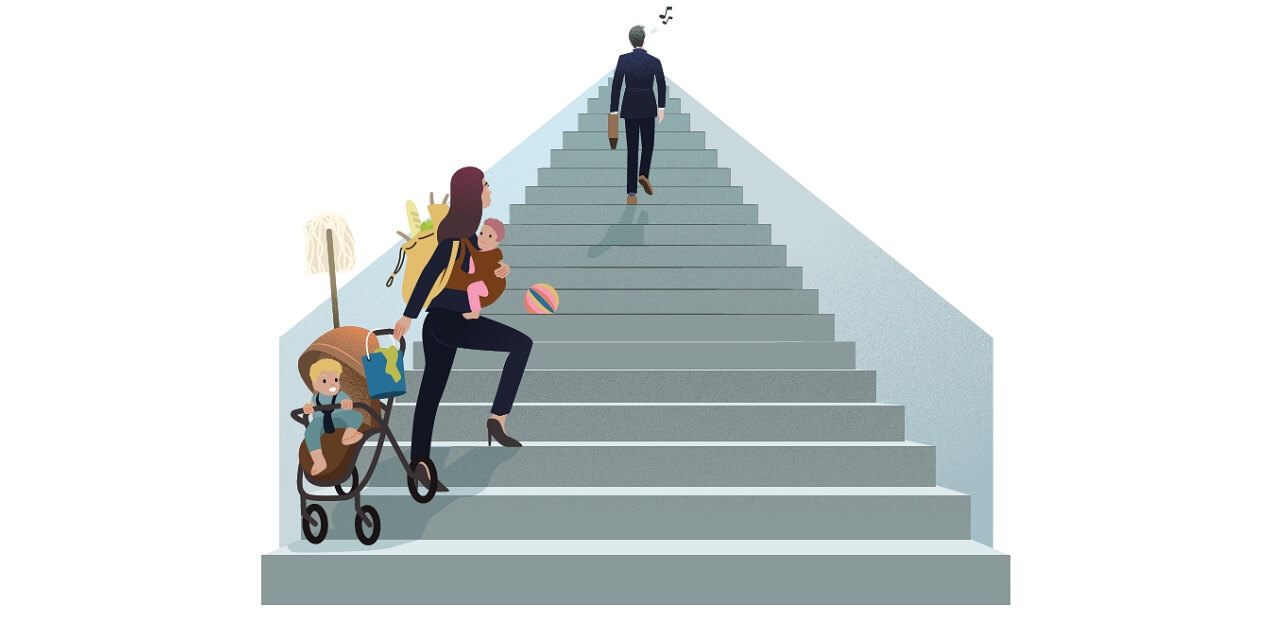The Sense (and Nonsense) of Female Leadership Programs

Author: Maartje Laterveer | Image: Ricky Booms | 25-06-2024
As manager for women's leadership programs, I am often asked: why? Why have a leadership program exclusively for women? I understand this reaction. It is a question that implies objections which I long held. When I started writing about diversity and inclusion as a journalist, there was a proliferation of programs teaching women to negotiate stronger and become more visible. Companies embraced these programs as the solution to the lack of women in senior leadership positions. And although I spoke to women according to whom such programs did indeed enable them to advance their careers, I had strong doubts. And I still do. But after years of researching women's positions in the labor market and a few years as diversity specialist in the Zuidas, I am convinced that leadership programs for women do make sense. Especially now, as the pressure on companies to appoint more women to senior leadership roles and be transparent about their strategies in doing so, increases.
A program focused exclusively on women by its nature does what it claims to combat: distinguish between people based on gender, which, essentially, is discriminatory. Female leadership is sometimes placed on a form of pedestal as superior to male, traditional leadership, thereby explicitly underscoring the distinction. Or women are degraded to a group in need of assistance, as though they are inherently less capable of playing by the rules of the game. I do not subscribe to either view. These views imply a fundamental difference between men and women, a perspective that, as far as I am concerned, belongs to the 1990s when books like Men Are from Mars, Women Are from Venus flew off the shelves. In 2024, according to science and evolving insights there is a wider spread of differences within gender groups than between the genders. Noticeable differences in behavior and ambition seem to stem from societal conditioning more than from natural inclination.
Nevertheless, I believe that at this stage, with women still underrepresented at the top, there is value in organizing leadership programs specifically for women. Not because I think women to be a special breed who needs improvement, nor because women form a homogeneous group with better leadership qualities than men. But because women work in a context which to them is fundamentally different from what it is to men, and it is important that women understand the implications of these differences to create a level playing field.
Shaky tightrope
In a world where meritocracy is sacred, this is a sensitive subject. When I give diversity training, I still often need to guard that it does not get bogged down in a discussion about why such training is even necessary. The reasoning goes that as women are equal before the law and have the same opportunities as men, and still are underrepresented at the top, it must be their own fault. Not only men hold this opinion. Many women also struggle to acknowledge the existence of a glass ceiling and refuse to see themselves as victims. But I see the opposite: women who do not allow for this and are not even conscious of it are the real victims. They are led to believe that the challenges they face are of their own making, that the reason they are not advancing as fast as their male counterparts is because they are not working hard enough or are not competent or ambitious enough. And they compensate by working even harder, by hiding their insecurities and their so-called feminine traits in favor of the so-called masculine traits which apparently lead to success.
Research shows that women are on a shaky tightrope when it comes to leadership traits. On the one hand, women indeed need to exhibit masculine traits to get ahead, but this can easily be perceived as being less sympathetic. When a woman expresses self-confidence, she is arrogant, while a confident man is simply a man, for instance. When a woman gets angry, she is quickly labelled as acting hysterical or being a bitch. An angry man is driven and passionate. The result is not only that women have to work harder to prove themselves as leaders while still being taken less seriously even when they secure leadership positions, as the annual Reykjavik Index for Leadership shows, but also that it is more challenging for women to develop authentic leadership styles.
Men in skirts
Many women in leadership positions are still referred to as ‘men in skirts,’ with the implication of having adapted to the male-dominated culture of the workplace. It is however not only women who adapt. Recent research by Deloitte shows that more than half of employees in large companies hide authentic characteristics to fit in. These companies seemingly have a very narrow definition of success, where even men feel they need to present themselves differently to belong. But the percentage of women who abnegate themselves is significantly higher, which is not surprising given that the definition of success in most companies is masculine in nature.
Nor is it surprising considering the traditional societal gender roles that still permeate the workplace. Another worrying trend highlighted in the report is that women still more often are responsible for caregiving duties at home. Especially when children come along, it becomes tougher for many women to show the dedication needed for promotion. This is due not only to practical obstacles, such as, in the Netherlands, expensive and over-subscribed childcare and archaic school schedules, but also to what American professor Joan C. Williams calls the ‘maternal wall’: the common perception that women become less competent and less ambitious once they have children. This can lead to young mothers being sidelined or doubting themselves as promotions repeatedly pass them by because they are ‘not quite ready’. Many women respond by working even harder to prove themselves, pushing themselves into an impossible balancing act to meet both professional and motherhood expectations.
All this denial and juggling of time and boundaries come at a high price, paid by both the women and ultimately the companies they work for. Deloitte's latest Women at Work report shows that mental health is a growing problem among women in the workplace. Half of the surveyed women indicate that they experience more stress than a year earlier, and more than half say they are afraid to talk about their mental well-being with their managers for fear of negative career repercussions. The consequences are also evident in the Netherlands. Late last year, occupational health and safety services HumanCapitalCare and ArboNed reported an increase in burnout complaints among employees. It was for the most part highly educated women who suffered from long-term burnout.
The personal is political
A successful leadership program helps women realize that they do not have to be subjugated to the system. Not only by providing theoretical insights into the dynamics in which they work and equipping them with tools to strengthen their resilience, but also by giving them a network of women. Such a network is helpful in a professional sense, but also in dealing with the gender-specific challenges women face. When female leaders see that other women face the exact same challenges as themselves, it becomes easier to distinguish between personal obstacles and obstacles which are systemic. Also, to borrow a famous feminist expression: what is personal, and what is political. This distinction helps in creating a realistic personal development strategy, and in my experience, it gives many women a significant boost in self-confidence.
So, if you ask me now, I would say: yes, women's leadership programs are indeed valuable. But I will immediately add, leadership programs for men would be of value too. Men, after all, also have a gender, and experience its effects in the context in which they work, albeit differently. Research shows that men often feel the need to appear more masculine than they are to meet the norm, or if they do not, get passed over for promotion because they are perceived as too nice or empathetic. It is of no benefit to the women's cause, but neither is it of benefit to men, to not acknowledge the world in its entirety. The real question then, is: why do we not yet have leadership programs for men?
Essay by Maartje Laterveer and published in Management Scope 06 2024. Laterveer writes about diversity and leadership and is connected as to Deloitte as leadership development specialist.

